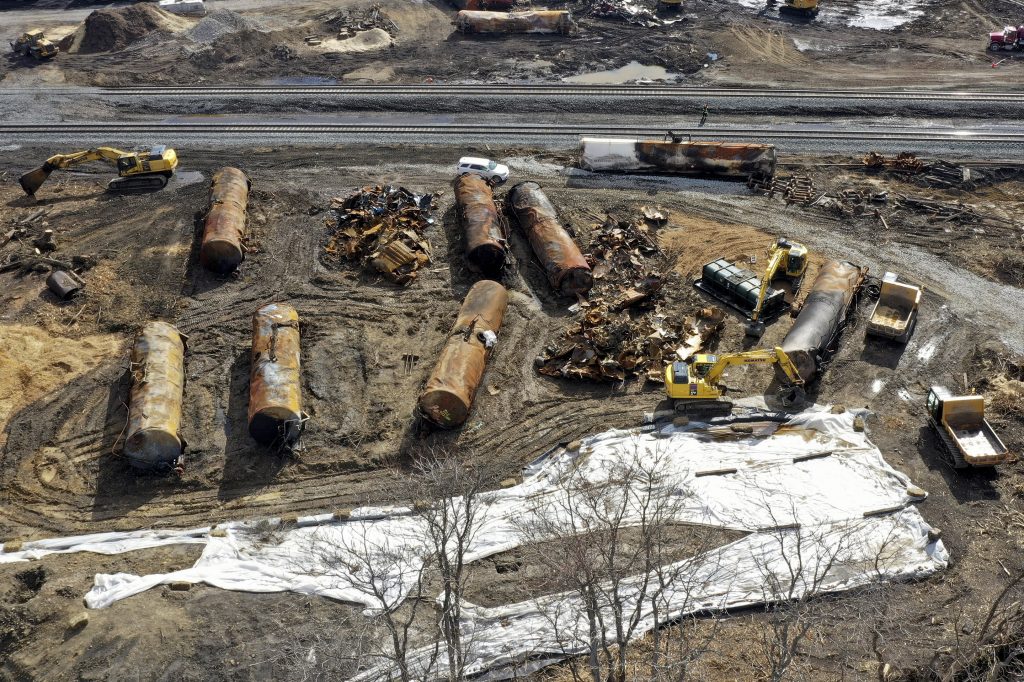Aftermath of the Ohio train derailment and waste disposal in Michigan
While shipments of waste into Michigan have paused, the incident raises questions about how we respond to similar situations in the future.

A view of the scene Friday, Feb. 24, 2023, as the cleanup continues at the site of of a Norfolk Southern freight train derailment that happened on Feb. 3 in East Palestine, Ohio.
In early February, a train carrying hazardous materials derailed in the city of East Palestine, Ohio. 38 cars went off the tracks, leading to the release of toxic chemicals into the environment.
While the investigation and cleanup efforts are ongoing, Michigan residents and officials began expressing concerns after it was learned that the hazardous waste was being transported to disposal sites in Michigan. Following complaints, the Environmental Protection Agency took over control of the cleanup from the train’s operator — Norfolk Southern — and paused the transfer of waste from Ohio to Michigan.
“I doubt that any more of this will come to Michigan.” Rep. Debbie Dingell, U.S. House of Representatives
Listen: How waste from an Ohio train wreck ended up in Michigan.
Guests
Rep. Debbie Dingell is a Democrat representing Michigan’s 6th Congressional District. She says she does not believe any more waste from the site will be arriving in the state after officials raised concerns with the EPA.
“I doubt that any more of this will come to Michigan, though, we’ve got to see what other sites have capacity to handle toxic waste,” says Dingell. “But we need to be using this to have a conversation about a lot of subjects.”
Ian Duncan is a member of the Washington Post’s transportation team focused on the U.S. Department of Transportation. He recently wrote about a Federal advisory directed toward railroads following this incident. He says individual states are limited in what they can do related to railroads.
“There is a pretty long legal tradition that they [railroads] are subject to federal regulation,” says Duncan, “and the states can only play a pretty limited role in regulating railroads. We’ve seen a few efforts to try and act since this derailment by states. But I think there’s a real question about whether those laws will stand up if they’re challenged by the railroads or by anybody else.”
Keith Matheny is an environmental reporter with the Detroit Free Press. He says some of the frustration about spills like this comes from a formulaic response without accountability.
“I’m sure they [Norfolk Southern] have liability insurance and they’re a very large corporation,” says Matheny. “They can write the check… that’s been sort of the corporate response historically and that’s been the frustration of a lot of people.”
Trusted, accurate, up-to-date.
WDET strives to make our journalism accessible to everyone. As a public media institution, we maintain our journalistic integrity through independent support from readers like you. If you value WDET as your source of news, music and conversation, please make a gift today.
